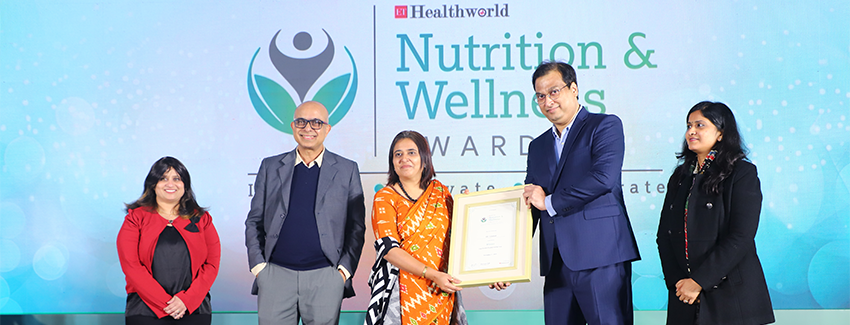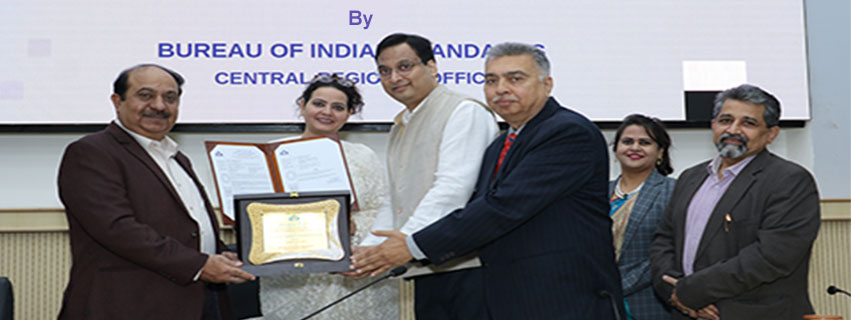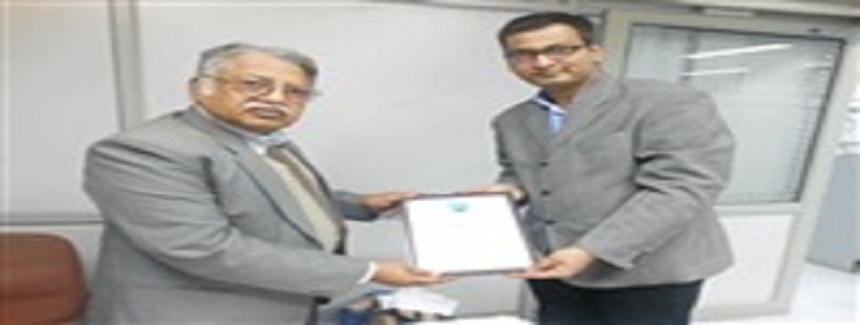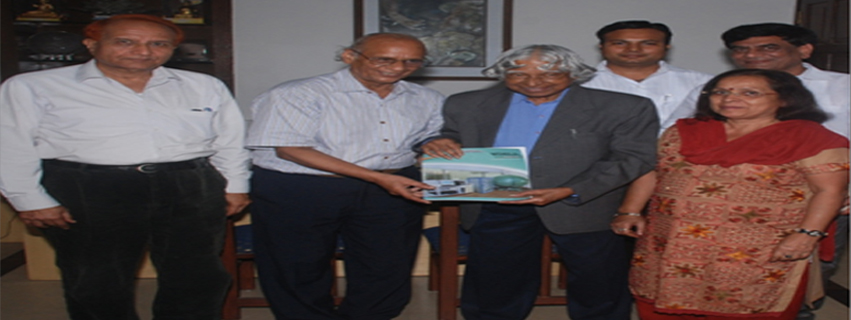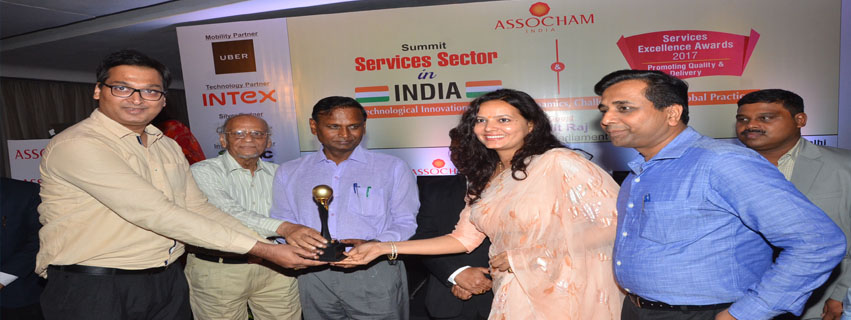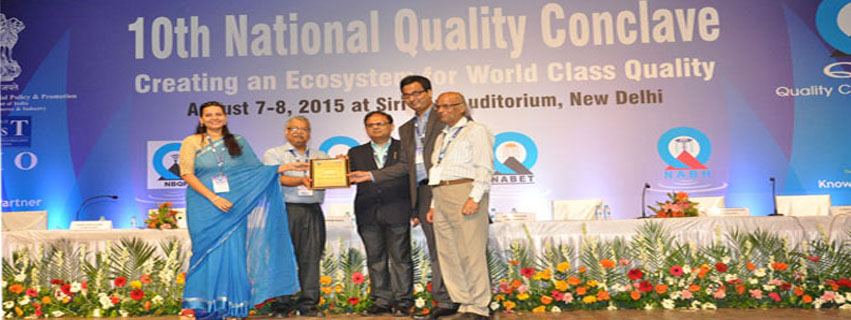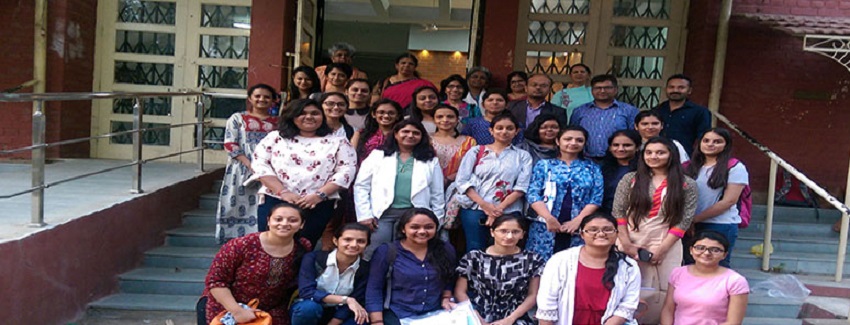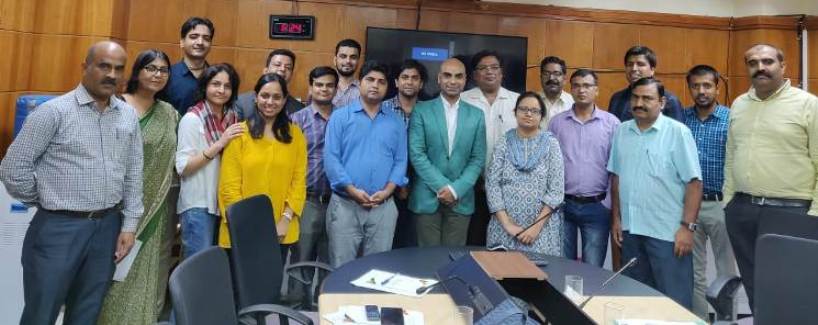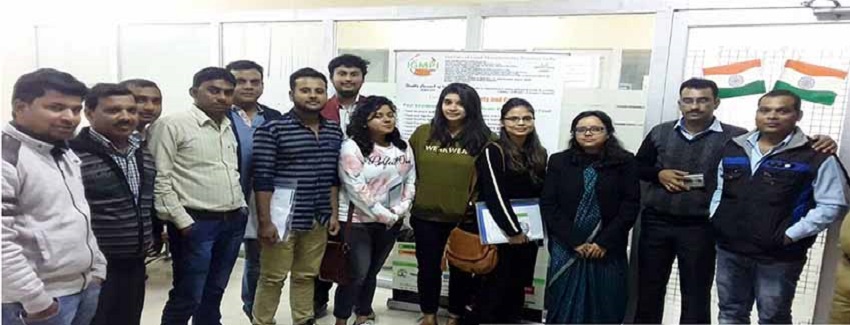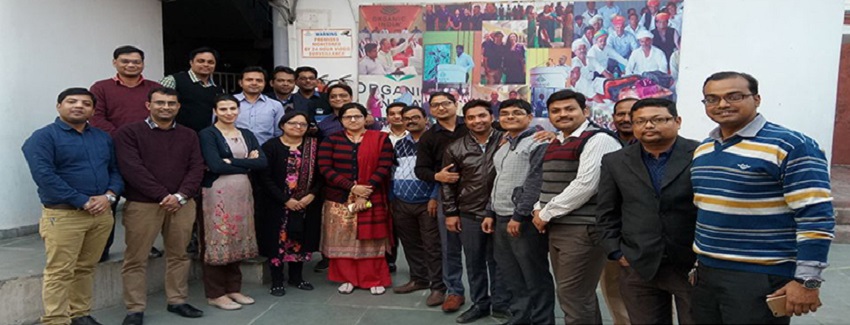(An Autonomous Body Recognized by Ministry of Commerce & Industry, Government of India)
Competency based placement focussed Education | Training | Research | Consultancy
Post Graduate Diploma in Electric Vehicle (EV) Technology (PGDEV)
The Post Graduate Diploma in Electric Vehicle (EV) Technology is a one-year advanced training programme designed to provide participants with in-depth knowledge and skills in EV systems, battery technologies, charging infrastructure, vehicle dynamics, and policy frameworks. This programme prepares professionals for the rapidly growing EV industry by integrating engineering concepts, sustainability practices, and business models.
Participants will gain exposure to powertrain design, battery management systems, hybrid and fuel cell technologies, and manufacturing practices, along with projects and a capstone module. Ideal for engineers, technologists, sustainability professionals, and entrepreneurs, this diploma equips learners with the expertise needed for careers in EV design, manufacturing, charging infrastructure, maintenance, and policy consultancy.
Programme Structure
Module 1: Introduction to EVs and Sustainable Mobility
- Evolution of electric vehicles: global & Indian scenario
- Comparison with ICE and hybrid vehicles
- Role of EVs in achieving sustainability goals
- EV ecosystem and stakeholders
Module 2: EV Powertrain Systems
- Electric motors: BLDC, PMSM, induction motors
- Power electronics: inverters, converters, controllers
- Motor control techniques and regenerative braking
Module 3: Energy Storage Systems
- Battery chemistry: Li-ion, LiFePO4, solid-state batteries
- Battery design, performance, and thermal management
- Safety and lifecycle of EV batteries
Module 4: Charging Infrastructure and Grid Integration
- AC/DC charging systems, fast charging, and wireless charging
- Standards and protocols (CHAdeMO, CCS, Bharat EV)
- Charging station design and safety considerations
- Vehicle-to-grid (V2G) integration and smart grids
Module 5: Battery Management Systems (BMS)
- BMS architecture and components
- SOC, SOH, and SOP estimation
- Fault detection, protection, and data analytics
- Real-time monitoring and IoT-enabled BMS
Module 6: Vehicle Dynamics and Control
- Vehicle dynamics modeling for EVs
- Control systems for stability and energy optimization
- Thermal management systems
- Simulation tools (MATLAB/Simulink, ANSYS)
Module 7: Hybrid and Fuel Cell Vehicles
- Hybrid powertrain configurations: series, parallel, plug-in
- Hydrogen fuel cell technology for EVs
- Comparative efficiency and applications
- Case studies of hybrid and FCVs
Module 8: EV Manufacturing, Maintenance & Safety
- EV design and assembly processes
- Preventive and predictive maintenance
- High-voltage safety protocols
- Battery recycling and second-life applications
Module 9: Policy, Business Models & Entrepreneurship
- National and global EV policies, incentives, and subsidies
- Economics of EV adoption
- Business models for charging infrastructure and fleet operations
- Case studies: Tesla, Tata Motors, Ola Electric
Module 10: Emerging Technologies in EVs
- Solid-state batteries, supercapacitors
- Wireless & ultra-fast charging systems
- AI and IoT in EV operations
- Autonomous EVs & connected mobility
Module 11: Renewable Energy Integration with EVs
- Solar-powered charging stations
- EVs in microgrids and smart cities
- Role of EVs in decarbonization and SDGs
- Case studies of renewable-energy based EV charging
Module 12: Data Analytics and Digitalization in EVs
- Big data applications in EV fleet management
- AI/ML for predictive maintenance
- Cybersecurity in EVs and charging infra
- Cloud-based energy optimization tools
Module 13: Capstone Project Module
- Objective: Apply theoretical and practical knowledge to a real-world EV problem.
- Project Areas: EV subsystem design, BMS development, charging infrastructure, lifecycle analysis, or EV policy analysis.
- Deliverables: Project report, working prototype/simulation, and viva presentation.
Module 14: Capstone Project
Eligibility
Graduates in engineering, science, technology, or related disciplines are eligible for this Post Graduate Diploma. Working professionals in automotive, energy, and sustainability sectors are strongly encouraged to enroll.
Programme Duration
- Minimum duration: 1 Year
Programme Mode
Registrations are currently open for regular and Part-time (Online Live Classes) both modes.
Programme Deliverables
- Comprehensive study material in hard copy, aligned with industry practices
- Online live sessions on all key areas with weekend flexibility
- Doubt-clearing sessions before assessments/examinations
- Self-assessment assignments after each module
- Capstone project guidance by IGMPI faculty and industry mentors
- Feedback sessions to enhance learning outcomes
- Training delivered entirely in English
Examination and Certification
All the participants are obliged to timely submit completed assessment assignments (during the programme, usually after every module) and appear for an online exam at the end of the programme. After successful completion, the participants will be awarded Post Graduate Diploma in Electric Vehicle (EV) Technology by Centre for Environmental Health and Safety, IGMPI. For all the above mentioned modules elaborate programme material and self-assessment assignments would be provided by the Institute from time to time. Details get updated on the webpage as well.
Discipline in Classes and Examination
Every student is required to observe a disciplined behaviour during her/his classes, assessments & examinations and to follow instructions from the Professors. Any act of indiscipline may result into discredit & it will be mentioned in her/his academic report.
Placement Assistance & Corporate Relations
- Dedicated placement cell with HR and industry experts to connect participants with hiring organizations.
- Resume building, interview preparation, and career counselling support.
- Partnerships with EV manufacturers, battery companies, charging infra providers, and consulting firms.
- Corporate Resource Division actively recommends students for specialized roles in the EV sector.
Future Career Prospects
With rapid adoption of electric mobility and global net-zero commitments, career opportunities in the EV sector are expanding. Graduates can work as:
- EV Design Engineers
- Battery & BMS Specialists
- Charging Infrastructure Planners
- EV Maintenance & Safety Engineers
- Policy Analysts & Consultants
- Entrepreneurs in EV technology & services
Leading recruiters include:
- EV & Automotive OEMs: Tata Motors, Mahindra Electric, Ashok Leyland, Ola Electric, Tesla, BYD
- Battery & Energy Storage Companies: Exide, Amara Raja, Panasonic, CATL
- Charging Infrastructure & Smart Grid Firms: Fortum, Delta Electronics, ABB, Siemens
- Consulting & Policy Organizations: E&Y (Sustainability), PwC, KPMG, NITI Aayog, BEE
- Government & Utilities: EESL, NTPC, SECI, State DISCOMs
For entrepreneurs, opportunities exist in EV retrofitting, charging infra startups, battery recycling, fleet electrification, and clean mobility consulting. With industry moving toward AI-enabled mobility, smart cities, and hydrogen technologies, skilled EV professionals will be in high demand worldwide.
Programme Fee Details
Programme fee details will appear here.
Last date for submitting completed Application Form: 17th Feb 2026.
For further enquiries, call or write to us on:
18001031071
(Toll Free -9:00 am to 5:30 pm IST-except on Central Government holidays)/
info@igmpi.ac.in
NEWSLETTER
Other Programmes
- Climate Change Technology (PGDCCT/EDCCT)
- Corporate Social Responsibility and Sustainable Management (PGDCSRSM/EDCSRSM)
- Development Management (PGDDM/EDDM)
- Disaster Management (PGDDM/EDDM)
- Environmental Health and Safety (PGDEHS/EDEHS)
- Environmental Social & Governance (PGDESG/EDESG)
- Environmental Law and Policy (PGDELP/EDELP)
- Environmental Studies and Resources Management (PGDESRM/EDESRM)
- Corporate Affairs Management (PGDCAM/EDCAM)
- Geoinformatics (PGDGI/EDGI)
- Green Technologies (PGDGT/EDGT)
- Industrial Safety Management (PGDISM/EDISM)
- Oil & Gas Technology and Management (PGDOGTM/EDOGTM)
- Natural Resource and Biodiversity Management (PGDNRBM/EDNRBM)
- Petroleum Technology and Management (PGDPTM/EDPTM)
- Fire Technology & Industrial Safety Management (PGDFTISM/EDFTISM)
- Industrial Hygiene (PGDIH/EDIH)
- Business Sustainability (PGDBS/EDBS)
- Power Management (PGDPM/EDPM)
- Public Policy and Sustainable Development (PGDPPSD/EDPPSD)
- Renewable Energy Management (PGDREM/EDREM)
- Sustainable Agriculture (PGDSA/EDSA)
- Remote Sensing and Geographic Information System (PGDRSGIS/EDRSGIS)
- Urban Planning (PGDUP/EDUP)
- Waste Management (PGDWM/EDWM)
- Business and Human Rights (PGDBHR/EDBHR)
- Sustainable Development (PGDSD/EDSD)
- Water Resource Technology and Management (PGDWRTM/EDWRTM)

